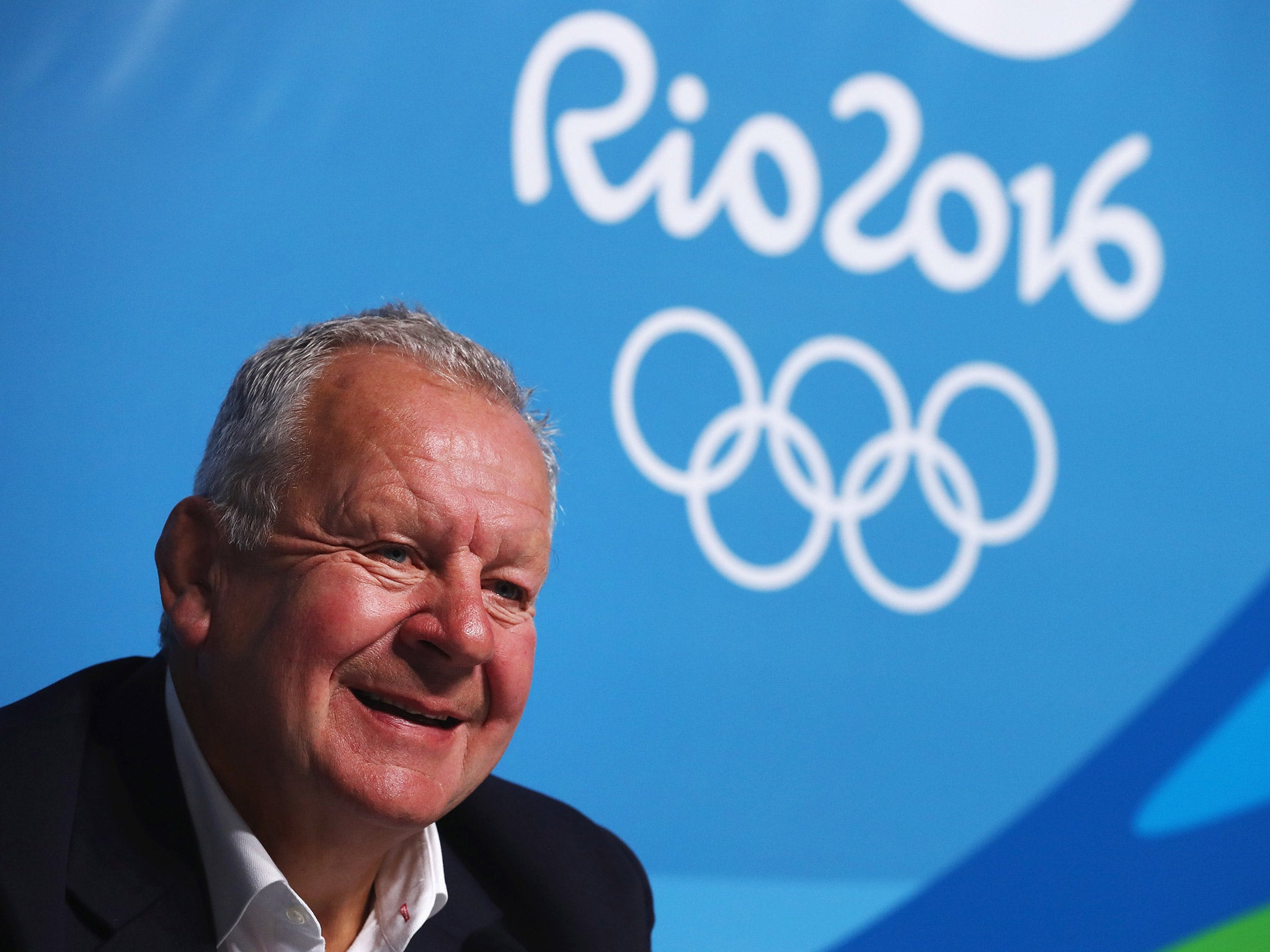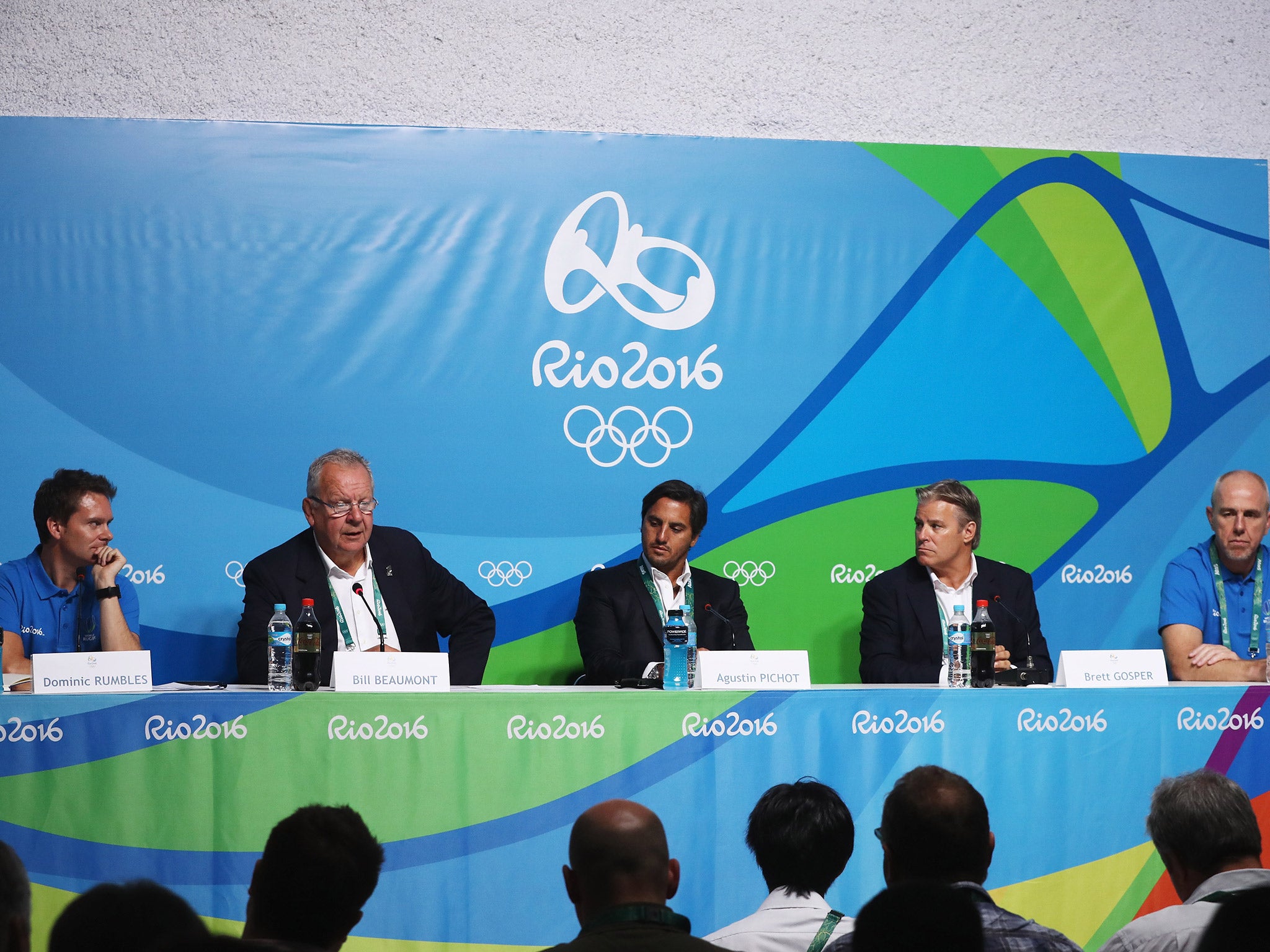Rio 2016: 'Sevens can be our T20,' says World Rugby chairman Bill Beaumont as rugby makes Olympic return
Beaumont believes the return of sevens to the Olympic programme will expand the game like never before

Your support helps us to tell the story
From reproductive rights to climate change to Big Tech, The Independent is on the ground when the story is developing. Whether it's investigating the financials of Elon Musk's pro-Trump PAC or producing our latest documentary, 'The A Word', which shines a light on the American women fighting for reproductive rights, we know how important it is to parse out the facts from the messaging.
At such a critical moment in US history, we need reporters on the ground. Your donation allows us to keep sending journalists to speak to both sides of the story.
The Independent is trusted by Americans across the entire political spectrum. And unlike many other quality news outlets, we choose not to lock Americans out of our reporting and analysis with paywalls. We believe quality journalism should be available to everyone, paid for by those who can afford it.
Your support makes all the difference.Rugby Union’s governing body said on Friday that the meteoric growth of the sevens form of the game could see it have the same contribution that T20 has had to cricket, ahead of a return to Olympic competition which is the “biggest kick-start” the sport has ever had.
While golf’s arrival to Olympic competition has been greeted with scepticism and cricket flatly rejected the idea, the arrival of sevens is seen by World Rugby as its launch pad into the Americas, Asia and another new territory and the way of drawing women to the game in their thousands
The suggestion that sevens might actually upstage the less accessible XVs game, with its rules which are more abstruse for the uninitiated, appeared to be a slightly sensitive one for the governing body, whose executives insisted that it would not.
“I think you can see the two working together,” said chairman Bill Beaumont. “People who are pulled into the game who don’t understand it and not been to a rugby club will realise it is a great game and ask ‘Where do I go next?’ People who come out here and [flourish] can represent their countries at XVs. Some at XV aside will ask themselves can they do that at sevens. I don’t see one as competing with another but the opposite; that they can expand and enhance the game
“T20 cricket was invented because of growth issues in Test cricket. We are adding dynamism to 15s in areas that we do not have as strong presence,” said Mark Egan, the body’s head of competitions and performance. “The object is to grow the game through sevens and not compete.”
But the two codes are competing – with sevens’ players boasting greater athleticism and speed than many XVs players and stars of the established code actually failing to make the squads for the Olympic competition. Both Jarryd Hayne (for Fiji) and Quade Cooper (Australia) failed to make the cut. Scotland centre Mark Bennett is the only capped XV player in the Team GB sevens team.
“I think within the [sevens] discipline there are strengths that will emerge through the competition,” said Bill Beaumont. “A great number of countries conducted trials for XVs players who did not make it.”
Sonny Bill Williams was selected for the New Zealand team, bringing with him his vast social media footprint which World Rugby sees as one of its biggest assets in helping to seize the Olympic opportunity.
The successful bid for a place at the Olympics genuinely could form part of a breakthrough for rugby union, with the World Cup being taken outside of one of the recognised rugby nations for the first time in Japan, three years from now. The Japanese have been hugely enthusiastic.
The determination of rugby to embrace new nations is certainly a contrast to the International Cricket Council, which has overseen a concentration of wealth in England, India and Australiaa and left minor nations fighting for fixtures and funding.
With the late Jonah Lomu as a figurehead, the governing body secured Olympic status for Rio in 2009 and though maintaining a presence beyond the 2020 Tokyo Olympics requires attracting good crowds here, stimulating interest in social media and winning interest from broadcasters, there are already promising signs for the competition which starts on Saturday.
Gosper said two thirds of tickets for the men’s and women’s tournaments are sold and full-stadiums are expected “across the programme.”
This version of the sport is already taking off in Portugal and Kenya and it has been the means of developing rugby in the United States, Canada and Romania.

But the governing body sees huge potential in South America for countries to follow Argentina’s path. The Colombian women’s team – who compete in the three-day women’s competition which starts on Saturday – have blazed a trail. There is interest in Mexico and Brazil itself. Olympic status brings greater funding for development
Beaumont spoke of the importance of seeking to develop the game sustainably in countries where there could be growth. World Rugby’s Agustin Pichot said the game was at last developing beyond the “Anglo Saxon world.”
"Our national member unions have embraced the Olympic opportunity, and, with dramatic growth in new and emerging rugby nations,” Beaumont said. "In short, it has been a game-changer, enhancing our vision of a sport for all. This is the players' moment to shine, to enjoy and inspire.”
It was 1924 when rugby last featured in the Olympics, which means the United States have been Olympic champions for 92 years. No-one can expect them to retain their title, with the elite sides of XVs rugby here alongside Great Britain, but the speed of evolution suggests they may reclaim it on day.
Join our commenting forum
Join thought-provoking conversations, follow other Independent readers and see their replies
Comments